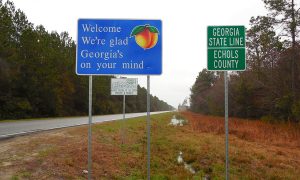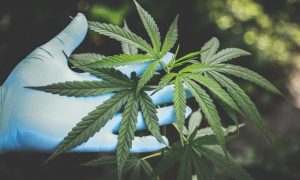Once again, the Drug Enforcement Administration (DEA) in their righteous virtue have created a new rule in regards to strengthening its hold on cannabis regulation. On December 14th, 2016, they amended the Federal Register with a new Administration Controlled Substance Code Number for “marihuana extract” which will allow the DEA and any entities affiliated with it to track quantities of this material separately from actual marijuana. Under this code, cannabis extracts will defined as, “an extract containing one or more cannabinoids that has been derived from any plant of the genus Cannabis, other than the separated resin (whether crude or purified) obtained from the plant.” According to the DEA, this measure will aid in complying with international drug-control treaty agreements. Essentially, this is a reinforcement of its stance to classify cannabis as well as cannabis extracts, including CBD oil, as Schedule I substances which makes them as illegal as heroin, LSD and peyote.
This new measure will allow the DEA to arrest and prosecute possessors of cannabidiol products that are even below the legal threshold for the THC percentage of 0.3% or less. In their point of view, “For practical purposes, all extracts that contain CBD will also contain at least small amounts of other cannabinoids. However, if it were possible to produce from the cannabis plant an extract that contained only CBD and no other cannabinoids, such an extract would fall within the new drug code.” Under this arbitrary purview, CBD oil derived from hemp is no longer safe from the ramifications of Schedule I regulation. Simply put, if you get caught extracting or possessing CBD oil that comes from hemp, you’ll be federally prosecuted.
There IS a spot of light to this tale, for there are temporary safeguards to protect patients and distributors who possess the oil. Passed in 2014, the Rohrabacher-Farr amendment, which is part of a Congressional appropriations bill, forbids the Justice Department from spending funds to interfere with the implementation of state medical cannabis laws. In August, the amendment was upheld by the 9th US Circuit Court despite efforts by federal prosecutors to have it rescinded. This amendment is crucial in protecting patients from federal prosecution in the 28 legal medical cannabis states, including D.C. Furthermore, there are 16 states that allow patients and caregivers to possess only non-psychoactive CBD products, albeit with no legal means to produce or obtain the products. Unfortunately, Rohrabacher-Farr has an annual renewal requirement, which was just done on Dec. 9 as part of House funding bill HR 2028, which will expire on April 28, 2017. When that resolution expires, so will the protections of Rohrabacher-Farr, making it open season for the DEA to hunt CBD oil possessors.
The DEA’s passing of this slippery slope rule has raised questions about the DEA’s authority to enforce such a regulation. Colorado cannabis attorney and law professor Robert Hoban claims the DEA’s action may be unlawful as their duty is to carry out the law, not create it. By creating a new category for “marihuana extracts”, they wrest all control of all cannabinoids in order to make them illegal, which is beyond their authority. Hoban also predicts that this new rule may threaten hundreds, if not, thousands of growing businesses as their careers and investments are based on the previous definitions of hemp and cannabidiol in the Controlled Substances Act and recent favorable rulings in federal courts.
Some have even speculated that this rule was passed as a favor to the DEA’s most esteemed client, Big Pharma. Several months ago, the DEA attempted to reclassify another substance called kratom as Schedule I. The timing of these two acts have been deemed too coincidental, which has led to the theory that the DEA as well as the FDA are trying to allow Big Pharma to commit biopiracy against the cannabis industry. Essentially, it is the act of learning everything about a plant or some kind of natural substance then extracting, stealing, patenting and then destroying others’ ability to obtain the original plant.
Whatever the case may be, business, lawyers and consumers alike are not planning to let this go without a fight. Should this rule prove itself to threaten the cannabis industry in any way, Hoban promises to “see the federal government in court.”
L.C. Squared



























